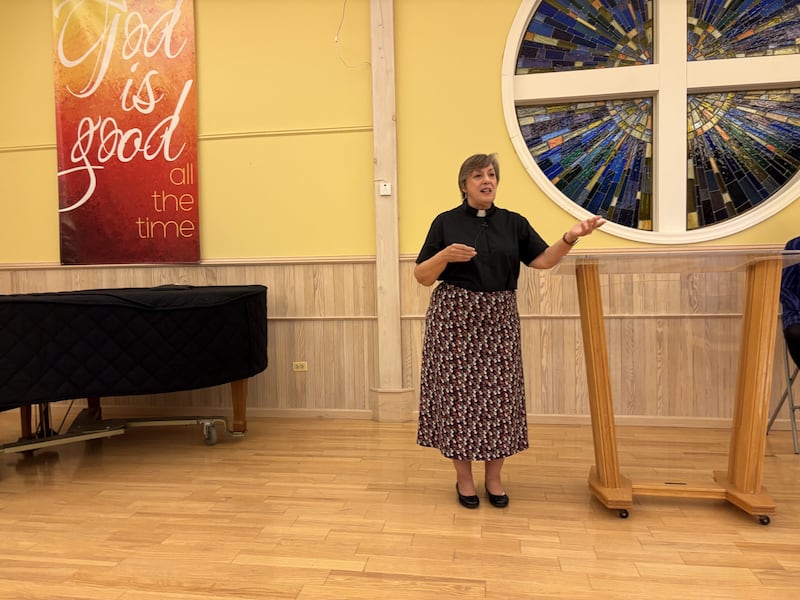As the country gets ready to gather for Thanksgiving this week, faith leaders from a variety of traditions, including Buddhism, Christianity, Islam and Judaism, reflected on gratitude and welcoming guests at an interfaith program.
FaithBridge, an organization that encourages interfaith communication, held its Thanksgiving program Sunday in Crystal Lake. The organization hosted its first Thanksgiving event in 2007, the year it was founded.
[ See more photos from the FaithBridge interfaith Thanksgiving program ]
This year’s theme focused on welcoming the stranger, and many of the leaders touched on how hospitality intersects with their faith.
Rabbi Maralee Gordon of the McHenry County Jewish Congregation said the U.S. has been made up of immigrants since its start.
“At this time of year, we count our blessings. How fortunate we are to live in the diverse nation that our country is,” Gordon said.
Gordon said Thanksgiving has historically been a “celebration” of how Indigenous people looked out for and welcomed early European settlers, but their hospitality was not returned.
“For all of us, our religious teachings teach us and exhort us to welcome immigrants and to look out for their welfare,” Gordon said. “Our interfaith observance reiterates that our teachings are valid and essential, as we see with dismay that these teachings have been pushed aside in many areas of the public sector today.”
She said people have been “denigrated” and taken away from their homes, workplaces and cars to be put into detention “regardless of their documents.” She also spoke of how Judaism’s “foundational story” is about being freed from oppression and slavery in Egypt.
“At least 36 times in the Hebrew Bible we are commanded that as free people, we are obligated to look out for the stranger, the immigrant,” Gordon said.
Abdul Waris with the American Muslim Community Organization said welcoming strangers in Islam goes beyond a “simple act of courtesy.” Waris said the principles on which Islam is based are courtesy and hospitality, citing specifics in the Quran.
Waris recalled that when he was a child, his family lived in a small two-room apartment, but when guests stopped by, they would be entertained.
Waris mentioned 2001 was a significant year. He and his family had been living comfortably in Pakistan before moving to the U.S.
“It wasn’t an easy task,” Waris said, adding that the family had to leave everything and start from scratch.
He said with the “blessing of God” and support from family, friends, community and the immigration system, they were able to get to naturalized status.
In 2024, Waris retired and moved to Lake in the Hills. He said he received great support from neighbors.
Deacon Pam Shearman from the Metropolitan Chicago Synod of the Evangelical Lutheran Church in America delivered the keynote speech, titled “Aspiring to Thanksgiving.”
“Jesus said, quoting Moses, ‘Love your neighbor as yourself,’” Shearman said.
She noted the story of the first Thanksgiving was “one of those aspiration stories – how to live in love and community.”
Shearman said Thanksgiving reminds us that love isn’t love unless it gets people to detach from self and act for the good of someone else.
“Love builds a bigger table instead of a bigger detention center,” Shearman said.
She asked the audience as they reflect on faith traditions and the first Thanksgiving to open their hands and hearts to neighbors.
